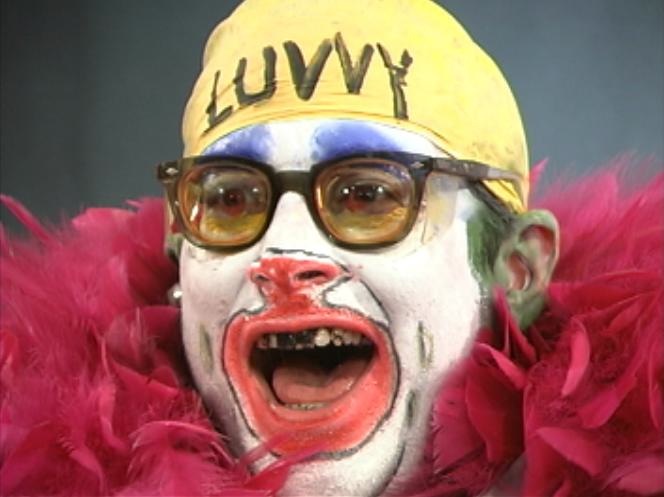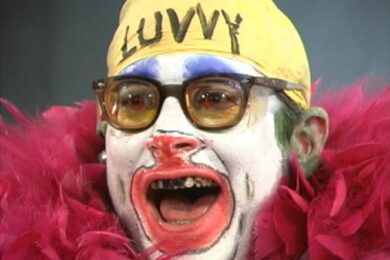Does Josh Harris – self-described as "one of the first great artists of the twenty-first century" – require an introduction? Ondi Timoner and her film We Live In Public say "Yes", summarising him as "the greatest internet pioneer you’ve never heard of". As the years fly by in this documentary – from the late eighties to the present – this central disparity between exposure and validation grows increasingly thematic.
Harris was a poster boy for the notorious Dot Com Bubble – a commercial boom that soared over the Millennial line, then promptly collapsed on its face. He claims to have been worth at one point over 80 million dollars. This would have been when he’d made his killing via a gaudy array of online businesses and was resident Manhattan party-thrower and CEO of Pseudo.com. Pseudo (which went bust in 2000) was a dial-up TV network merging streamed, live video feeds, gaming and chatroom interactivity. Its everything goes ethos attracted (according to the documentary at least) an eclectic crowd of local bohemians and online chatterers. As proprietor, Harris emerges as the extravagant benefactor of a thriving, nineties New York subculture of artists, performers and futurists. He’s compared more than once to Andy Warhol; an outright eccentric with an uncanny grasp on popular culture, and in particular its coming betrothal to the internet. A key moment is Harris confidently describing to Bob Simon on 60 Minutes how he will inevitably ‘take down’ CBS. What edge does he have over conventional television? He can "programme people’s lives".
In Timoner’s eyes he was a man subject to a lucid prescience of our now very-apparent dependence on the virtual world. In some cases Harris would bluntly articulate this (on the CBS interview, he paints a sinisterly explicit picture of how central to industry covert profiling of our individual choices and activities will become). But some of his more ‘random’-seeming displays are read as demonstrative examples of his foresight – with meanings that have crystallised since.
The centrepiece of this is the Big Brother-with-guns-and-psychological-torture installation that drew Timoner into a close working relationship with Harris in 1999. For thirty days a group of 100 extroverts drove each other insane, incarcerated in an extensively surveilled warehouse, constructed to seem like a cross between a cult bunker and concentration camp. This is taken as a ‘physical metaphor’ for our present menagerie culture of online blogging, profiles, social networking and the inexhaustible desire to publically broadcast our lives.

As a story basically chronicling the downfall of Harris as the "smartest guy in town", there are shades of Alex Gibney’s Enron documentary; also perhaps of Capturing the Friedmans in terms of the obsessive self-documentation of its subject (Harris filmed a sizeable chunk of the 5000 hours worth of footage used to create the film). But, like Timoner’s much lauded DiG!, this is far less multi-faceted and more the tale of the apparently brilliant but ultimately marginalised outsider. When he installs motion tracking cameras in his house to star (along with his girlfriend) in his own reality soap-opera, we realise that the real metric to his downfall isn’t economic or criminal but in the dwindling numbers of voyeurs subscribing to his online feed. "That combination", he remarks with tragi-comic timing, "is not designed for mental stability and happiness."
As someone previously unintroduced to Josh Harris, a layer of the film’s intrigue stemmed from the question of whether – as the ‘cautionary tale’ for our times – it might also be an exercise in aligning the past with the present: a retrospective act in consolidating his myth. Was Quiet: We Live In Public (the title of the bunker installation) a coded message waiting for history to catch up with it – or a stunt quite in key with the then burgeoning development of the reality television format? Was Harris’s early song and video ‘Launder My Head’ a Cassandra-like reveal of "the future of media and the collective consciousness", or a goofy animation of dancing computer monitors? Regardless, whether Timoner articulates a bona fide ‘vision’ or not, We Live In Public is certainly an eye-opener.




